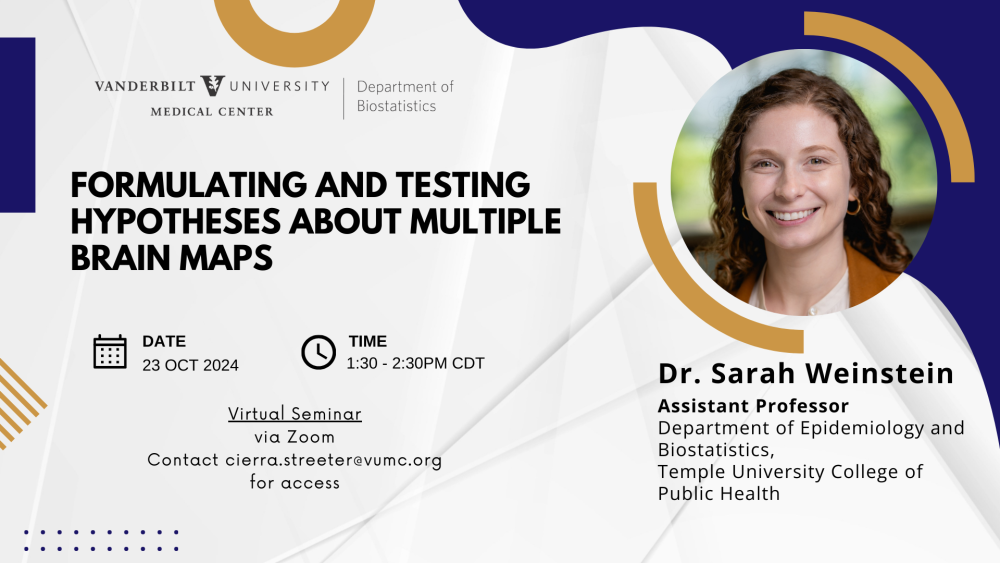
Abstract
During neurodevelopment, the brain undergoes a profound structural and functional re-organization. To understand how the brain changes during this period, researchers increasingly use multimodal neuroimaging to measure both distinct and shared spatial patterns in features of brain anatomy and function. However, defining, quantifying, and formulating and testing hypotheses about intermodal relationships has remained a challenge. In this talk, I will describe recent developments in hypothesis tests for multimodal neuroimaging data. Using permutation testing, we avoid making strong assumptions about the spatial structure of the input data, ensuring type I error control and replicability in relatively small sample sizes. Applications to neurodevelopmental data will be discussed.
Sign up to meet with Dr. Weinstein after the presentation here.
Sarah Weinstein, PhD, is an assistant professor of biostatistics in the Department of Epidemiology and Biostatistics at Temple University College of Public Health. She specializes in statistical issues in neuroscience research with a focus on neuroimaging data. Her ongoing methodological work includes statistical approaches to improving replicability and mitigating the impact of sampling bias in studies of brain health. She also has broad experience as a collaborative biostatistician including in psychology, psychiatry, neurology, and epidemiology.